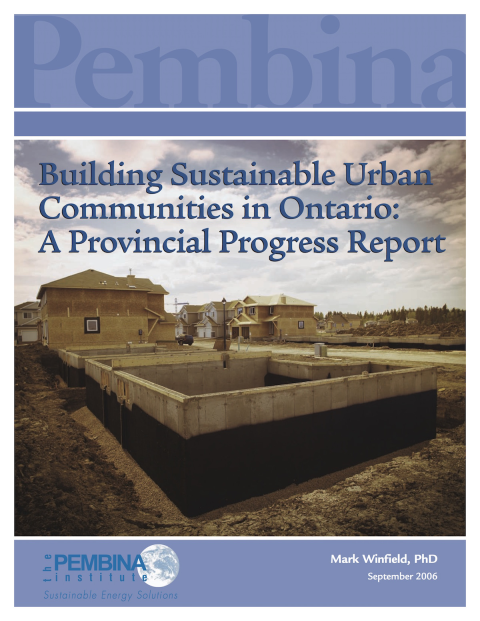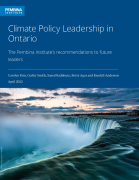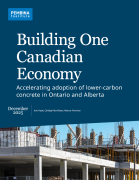The report is the fifth in a series of studies by the Pembina Institute on provincial legislation and policy affecting urban development in southern Ontario, focusing on provincial government initiatives between June 2005 and June 2006. The report assesses the government's overall progress on urban sustainability and smart growth issues, and highlights priority areas for action over the coming year.
The report concludes that major progress has been made in aligning the province's land-use planning legislation and policies with smart growth and urban sustainability principles, particularly through the Greater Golden Horseshoe Greenbelt and Growth Plan initiatives, and the revision of the Provincial Policy Statement made under the Planning Act. At the same time, the report identifies a number of major barriers to the implementation of the province's new policies and plans. These barriers include the following:
- The unwillingness of some municipalities to conform to the new provincial policies and plans, as highlighted by recent developments in the Durham region regarding the implementation of the Greenbelt Plan.
- The question of whether municipalities and conservation authorities have the capacity to carry out the required information gathering, analysis and planning activities.
- The impact of decisions by the province to exempt many existing development proposals from the new planning rules. Substantial areas of the greenbelt may be affected by these decisions. York region, for example, is proposing to convert more than 640 acres (260 hectares) of greenbelt protected countryside into the "Keswick Business Park" under these rules.
- The likely ineffectiveness of the Ontario Municipal Board in enforcing municipal compliance with the new provincial plans and policies.
- The need for mechanisms to ensure that the province's own major projects, like highways, and municipal infrastructure initiatives that receive financial support from the province, such as roads and sewers, support the province's new plans and policies.
- The failure to adopt complementary financial and taxation reforms, such as the reform of the development charges system, to support more sustainable urban development patterns.
The report makes 19 recommendation to address these challenges.








